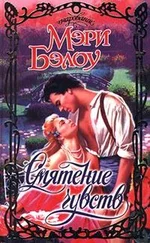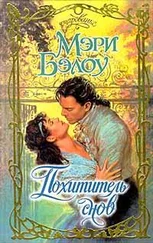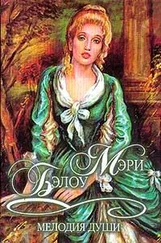Which did she believe? She had not even asked Mr. Thorne the important questions.
“I like him, Mama,” she said rather lamely in answer to her mother’s question.
“We know nothing of his lineage,” her mother said, “apart from the fact that he is somehow related to Lady Vickers. We cannot even be certain that he is wealthy, though he patronizes the very best tailors and boot makers and is apparently putting up at an expensive hotel. But he may be deep in debt for all we know. And if he made his fortune in trade , he may not be quite up to snuff even if he is a gentleman. Not for your father’s daughter at least.”
“Mama,” she said, smiling, “it is not Mr. Thorne who is downstairs with Avery.”
No, it was not. She had thought perhaps he might come yesterday after kissing her at the garden party. Oh, not to make a formal offer, perhaps, but maybe to take her driving or walking in the park. She had thought when Avery first mentioned this morning that some gentleman had requested the favor of half an hour of his time that perhaps it was Mr. Thorne. She was getting a little tired of roses and silences. Though there had been the magical interlude with the pianoforte at Elizabeth and Colin’s party. Yes, magical. And there had been the rose arbor at the garden party, and that kiss. Not quite her first, but . . . Oh, wherever was the man? She did not want just to be romanced. She wanted . . .
Oh, she wanted her heart to be besieged.
“You are quite right,” her mother said, laughing. “And if it were, I daresay Avery would make short work of him. He would not willingly allow you to marry a cit, even one who is a gentleman by birth. Not that you need his permission, of course, but it would be as well to have it when you do decide to marry. Avery has his funny ways, but I would never question his judgment.”
The drawing room door opened as she finished speaking and Avery stepped into the room. He raised his quizzing glass to his eye as the butler closed the door behind him, and he surveyed Jessica through its lens. A pure affectation, of course. There was nothing wrong with Avery’s eyesight.
“You are looking remarkably well turned out, Jess,” he said.
“Thank you.” She made to get to her feet. She must go down and get this over with. But Avery raised a staying hand and lowered his glass.
“Rochford asked for half an hour and was granted exactly that,” he said. “His mission might have been accomplished sooner, but he has a tendency to wrap up the kernel of what he has to say in florid language. He wishes to convey a countess’s title upon you at some future date, Jess.”
“Yes,” she said. “I will go down and speak with him.”
“Ah,” he said. “I would have detained him if I had known you were eager to speak to him. Alas, he has gone.”
“Gone?” Jessica’s mother said. “You did not refuse him, Avery, surely.”
He raised his eyebrows. “I do not have the power to do any such thing, Mother,” he said. “My duty as Jess’s guardian came to an end four years ago, a fact that afforded me as much relief as it did her. But men who wish to marry her seem to feel obliged to seek out my blessing if not my permission. That is what Rochford came to get. He failed and left. I did offer to bring him up to pay his respects to both of you anyway, but he seemed to be out of sorts and went away instead. Your efforts to look your best have been all for naught, Jess. Perhaps I had better take you and Mother to Gunter’s for an ice.”
“Avery,” Jessica’s mother said. “You are being deliberately tiresome. Why, pray, did you withhold your blessing from Mr. Rochford’s suit? You must know that it is what all of her family has been hoping for.”
“All?” he said, frowning. “Am I not at least an honorary member of the Westcott family, Mother, as your stepson? And as Anna’s husband? You wound me.”
“In case neither of you has noticed,” Jessica said rather tartly, “I am here. I would be obliged if the two of you would not continue to talk about my business as though I were not. Why did you withhold your blessing, Avery?”
He turned his attention upon her. “I cannot in all honesty say, Jess, that he would have my blessing under any circumstances,” he said. “Not unless he can lose a few teeth. But that might involve some painful extractions and I would not wish that upon my worst enemy.”
Jessica’s mother tutted and tossed her glance at the ceiling. Jessica, despite herself, smirked.
“I did inform him,” Avery continued, “that he will have my official blessing at least to speak to you in my house when he can offer in fact what he offered this afternoon merely in theory. The Earl of Lyndale still officially lives. When he is officially dead and Rochford’s father is confirmed in the title, then Rochford himself will be an eligible suitor for the hand of my stepsister. But before you can stamp your foot in anger over my presumption, Jess, may I remind you that I know very well you do not need my permission? It is merely my hope that you will listen to advice.”
“Do you believe, then,” she asked him, “that the Earl of Lyndale still lives?”
“I neither believe nor disbelieve,” he told her. “I speak merely of facts, and the fact is that the present earl lives until he has been pronounced dead by the appropriate authority.”
He was looking very directly at her, Jessica saw, his normally sleepy eyes unusually keen. He knows, she thought. Or if he does not know, he suspects. And if he suspects, he will ferret out the truth. Avery had a way of doing that.
“I am not about to turn down an offer of an ice at Gunter’s,” she told him.
He sighed. “I was afraid of that,” he said.
Her mother looked from one to the other of them and tossed her glance at the ceiling again.
The day after the garden party, Gabriel made arrangements to keep his suite of rooms at his London hotel, though he did not expect to be there for the next week. He arranged to have pink roses, accompanied by signed cards, sent to Archer House each morning for the coming week. He informed Sir Trevor and Lady Vickers and Bertie that he would be away from town for up to a week. And he took his curricle and pair, his valet, and his groom and drove north.
The village was called Lilyvale, Simon Norton had informed him, and was thirty miles or so southeast of Brierley. Ginsberg lived there with his daughter and son-in-law on a tenant farm he had leased more than twelve years ago. The information was secondhand, even thirdhand, by the time it had reached Norton’s ears, but Gabriel had decided to trust it. If it proved false, he would have wasted a few days. It would not be the end of the world.
The information turned out not to be false. Ginsberg lived in a fair-sized house on what looked to be a well-run farm. There was a neat garden about the house, sporting both flowers and vegetables as well as an expanse of freshly scythed lawn. Two young children, a boy and a girl, were roaring about the lawn when Gabriel arrived, involved in some noisy game. An older boy, nominally in charge of them, perhaps, was stretched out on his side on the grass, propped on one elbow, his head upon his hand. He was reading.
The children stopped to stare, and the older boy looked up from his book. “Good morning, sir,” he said.
“I have come to call upon Mrs. Clark,” Gabriel said. “Is she your mother?”
The boy sat up and crossed his legs. “Who shall I say is calling, sir?” he asked.
But the younger boy, less concerned with the niceties of hospitality, had turned tail and gone dashing toward the house. He opened the door, crashing it against a wall inside, and yelled. “Mama,” he cried. “Someone to see you.”
Читать дальше












